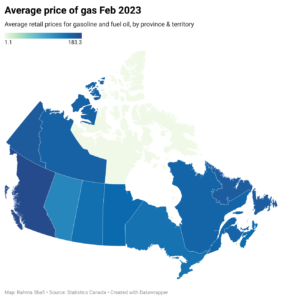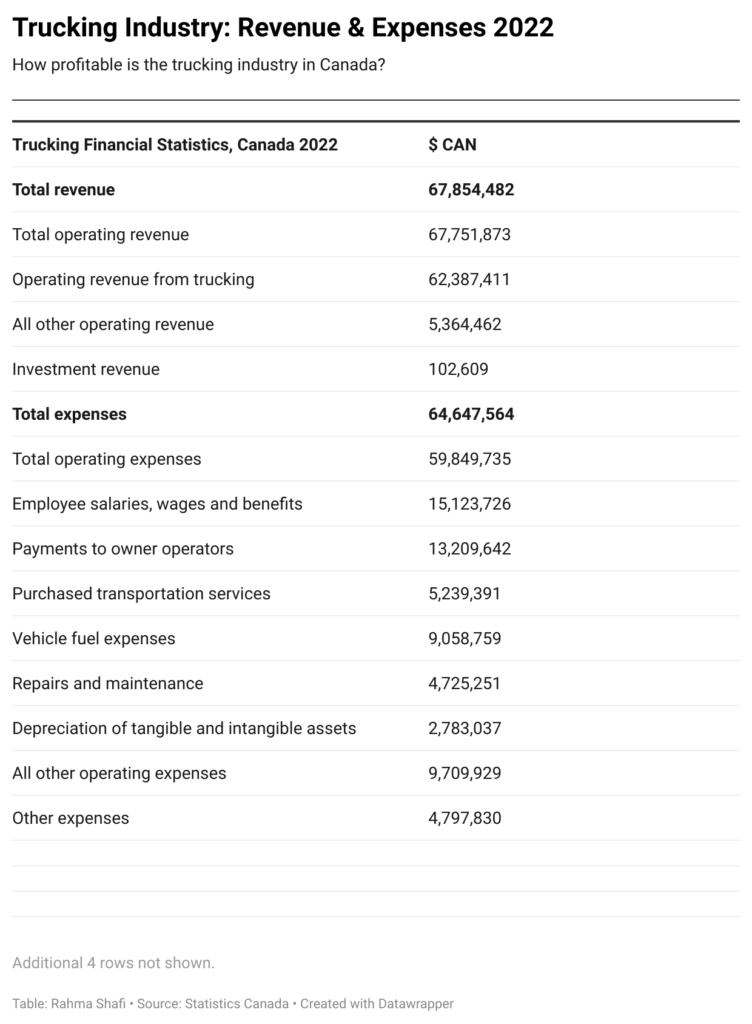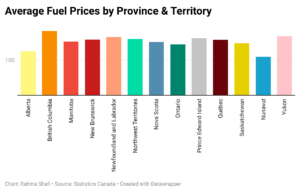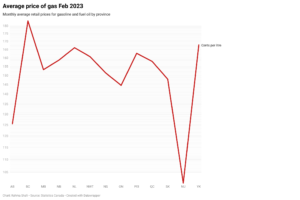
Inflation is an economic reality that affects every industry and sector, and the Canadian trucking industry is no exception. Since 2022, inflation has been a major concern for the Canadian trucking industry, and it has affected it in various ways. How is inflation affecting the Canadian trucking industry and what measures can be taken to mitigate its impact.
Amran Abdi, owner of Shal Express Inc., is one of many Canadian trucking company owners struggling with higher operating costs, reduced profit margins, and difficulty obtaining financing due to increased competition and reduced demand in the industry.
The rise in the cost of fuel is one of the major challenges faced by the Canadian trucking industry. The cost of diesel fuel has increased by over 30% since 2022, which has resulted in higher operating costs for trucking companies. This increase in fuel costs has directly impacted the bottom line of trucking companies, and they have had to increase their rates to stay profitable. For example, a trucking company that used to charge $2 per mile in 2022 may have to charge $2.50 per mile in 2023 to cover the increased fuel costs. https://www.datawrapper.de/_/AZcZV/
https://www.datawrapper.de/_/AZcZV/
Trucking companies have seen their profit margins shrink, with CFIB data showing that only 25% of trucking companies are currently operating at a profitable level. This has made it harder for these companies to obtain financing, with banks and other lenders becoming increasingly cautious about lending to businesses in the industry.
Inflation has also impacted the cost of equipment and maintenance.
"Unless you're driving a newer model, be ready to spend tens of thousands of dollars, easily. It's hard to keep drivers to stay with us. It's just too much money to replace parts" - Amran Abdi.
The cost of new trucks and trailers has increased significantly since 2022, which has made it difficult for small trucking companies to invest in new equipment. Additionally, the cost of maintenance and repairs has also increased due to inflation. For example, a trucking company that used to spend $5,000 on maintenance and repairs in 2022 may have to spend $6,500 in 2023.
The increased competition in the industry has also put pressure on trucking companies. According to data from the Canadian Trucking Alliance, there are over 150,000 trucking companies in Canada, with approximately 80% of them operating with fewer than five trucks. This has created a highly fragmented market, with companies vying for the same contracts and driving down prices.
At the same time, reduced demand for goods and services due to the COVID-19 pandemic has further affected the industry. According to the Conference Board of Canada, the transportation and warehousing sector saw a decline of 10.4% in 2020, with a slow recovery still underway for 2023 and 2024.
Despite these challenges, trucking company owners like Amran Abdi are taking steps to improve their businesses. In addition to optimizing routes and investing in fuel-efficient vehicles, some companies are exploring alternative financing options, such as factoring or leasing. Others are looking to diversify their services or expand into new markets to offset reduced demand in traditional areas.
High inflation can create a challenging environment for people like Amran Abdi and others in the trucking industry. To mitigate the impact of inflation, some companies may need to consider adjusting their pricing strategies or exploring alternative financing options.
Overall, the trucking industry in Canada is facing significant challenges, but with strategic planning and innovative solutions, companies like Shal Express Inc. can weather the storm and emerge stronger in the long run.







Be the first to comment